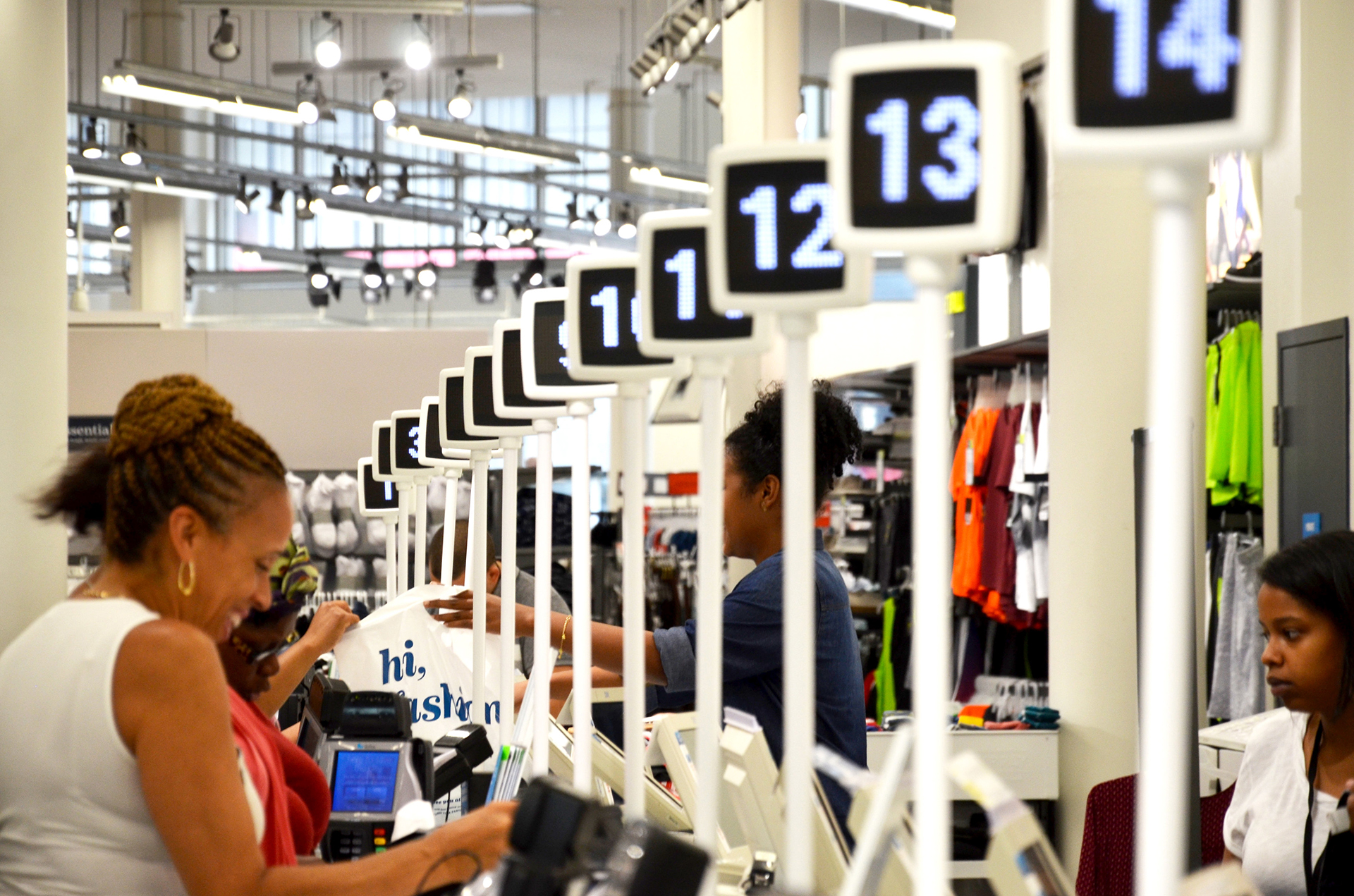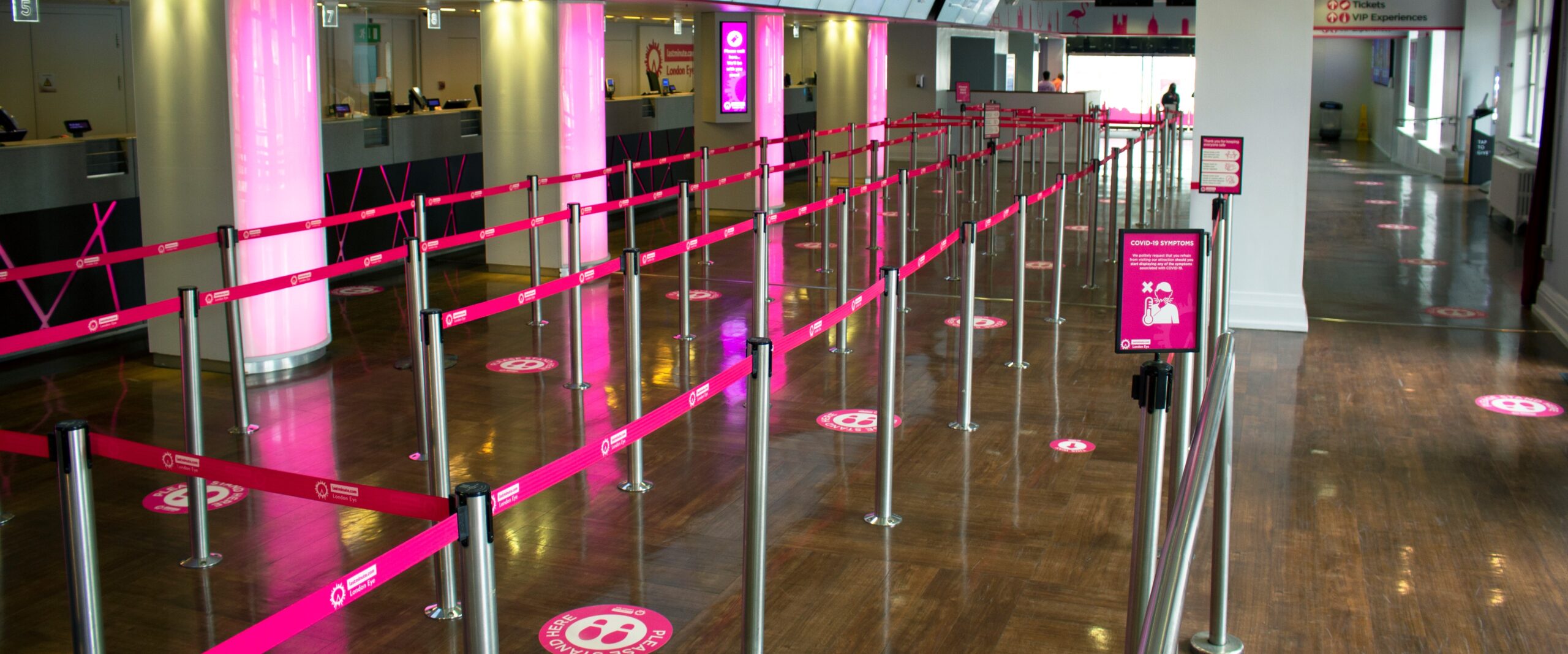- Home
- Sectors
- Solutions
- Tensabarrier®
- Tensamedia® Wayfinding and Signage
- Lawrence® Post & Rope
- Tensator® Airport Passenger Guidance System
- Electronic Queuing – eQ™
- Tensaguide® Modular Barrier System
- Tensator Micam Protection – TMP
- Safety Solutions
- Access Control
- In-Queue Merchandising
- Virtual Queuing – VQMS
- Tensator® Virtual Assistant
- Custom & Bespoke Solutions
- Resources
- About
- Contact Us
- Shop
 English (English)
English (English)
Queue Management – Reduce queuing times this Christmas
12
Dec

Crowds of customers can be coordinated safely and efficiently when queues are managed properly during the seasonal sales periods, says Kevin Hickson, general manager of Tensator.
With the Christmas and January sales allowing hundreds of shoppers to infiltrate the high-street and department stores en masse to pick up a number of bargains, it is important that retailers look to improve safety and manage queues effectively in order to improve sales periods for consumers.
In a competitive market, delivering good service is crucial in order to decrease customer ‘walk-aways’ i.e. customers who select merchandise, but leave the store without making a purchase. Retailers must also get shoppers out of the store as quickly and efficiently as possible if they want to maximise sales and increase footfall. If shoppers are made to wait in confusing and unorganised queues, they will more than likely become impatient, which will lead to long waiting times, poor customer experiences, frayed tempers and bad publicity. This could potentially damage the likelihood of consumers repeating their visit to the store again so soon, in preference to a better organised retail competitor.
Clear and concise communication is essential for everyone’s safety and well-being, including staff and customers. Once retailers have developed the knowledge and skills of the shop floor teams in time for the sales, noticeable signage combined with simple electronic and barrier systems will help improve service and safety, and thus act as further revenue drivers.
In-queue merchandising placed on slat-wall panels with shelving is a good example of encouraging impulse purchases from waiting customers and makes the queue more entertaining. During the sales, these solutions need to be maintained regularly, but are a great way to move last minute seasonal goods. From my experience in the retail industry, I would advise retailers to concentrate on utilising both staff and technology to their combined maximum potential through single line queuing via electronic call-forward systems as you can change a queuing experience into a positive one by using some basic principles of queue psychology. These types of technological systems operate on a first-come, first-served, single line layout, which is at the heart of most successful queues. Combined with a range of barriers and in-queue merchandising panels, the electronic call-forward system manages the waiting customers from the queue to the service point.
Customers are called to each position by the press of a calling button by the cashier, making the queuing process fairer and quicker, along with reducing the overall waiting time by up to 25 per cent in some instances, as well as decreasing employee stress. Shoppers therefore do not have to choose the queue that they think is moving the fastest. Using a single line queuing system also reduces a form of employee theft known as ‘sweet-hearting’. This involves a shopper taking a range of items to the cashier, who then in turn only scans the low-value items in order for their friend to receive higher-value goods for free. Sweet-hearting is made possible by retailers opting for multi-line queuing systems, which allow customers to choose who serves them.
Single line, electronic call-forward systems are an important tool to prevent stock loss, because when a single line services every till position, the cashier choice is automatically random. Any attempt by a customer to give up their place in the queue to wait for a particular cashier to become available then appears more obvious. With the emergence of new in-store electronic call-forward digital media systems over the original LED systems, additional reporting now enables retailers to analyse customisable data, service efficiency, resource planning and store performance to help improve standards. Another added benefit is the ability to project marketing messages and product information on linked digital screens to a captive waiting audience, who will in turn be more entertained, which will make the waiting time seem shorter. My final advice to retailers would be to regularly carry out research into safe and efficient shopping environments and consumer behaviour every year in time for the sales, and above all, be well prepared and seek external advice on the often overlooked issue of how to better manage the crowds.



